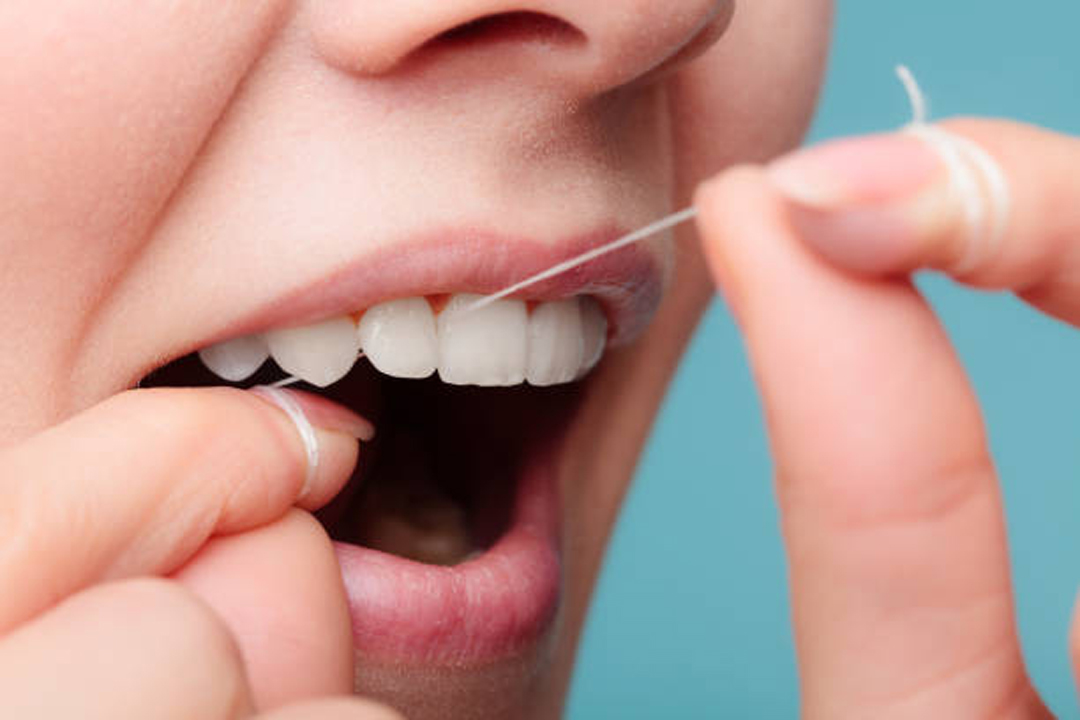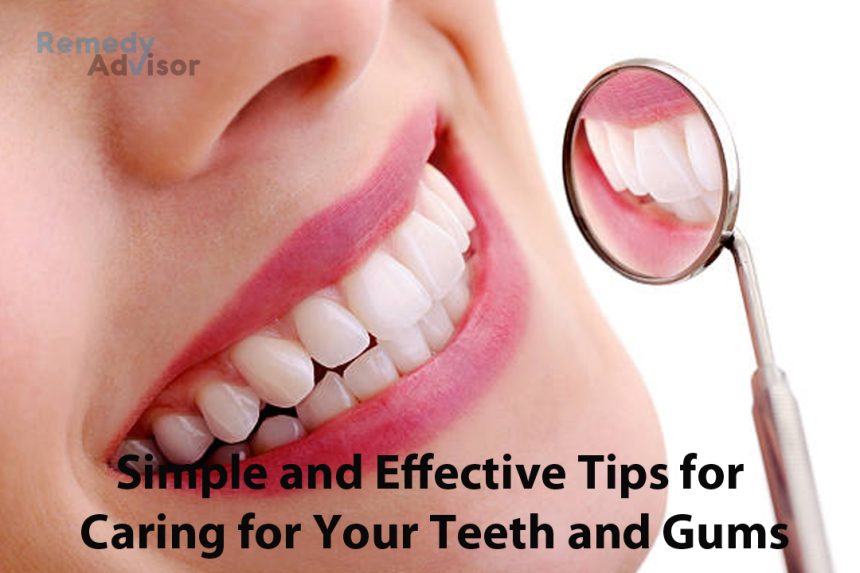Maintaining good oral health is important for overall health. Brushing your teeth is essential, but timing is also important. Waiting at least 20 minutes, and preferably an hour, after eating allows your mouth’s natural defenses to work, which can keep it free of bacteria. Using salt as a natural cleaning agent can help kill bacteria that cause plaque buildup. A salt and water paste can be used to brush teeth or as a mouthwash. Lemon and sage toothpaste can also be made at home to naturally whiten teeth and promote healthy gums.
Flossing or using water and air technology can remove plaque between teeth, which is important for preventing cavities and gum disease. Brushing your teeth for two minutes with an electric toothbrush that generates 40,000 brush strokes per minute is recommended. Chewing xylitol gum after meals can help neutralize toxic acids and wash away food particles and bacteria. It can also stop the growth of Streptococcus mutans, a primary cause of tooth decay. Starting dental care early is important for infants, and using xylitol wipes can help reduce the amount of harmful bacteria in their mouth. Overall, good oral hygiene habits are important for lifelong dental health.
Take your time brushing
Taking care of your teeth and gums is a big part of staying healthy. But did you know that when you clean your teeth, timing is really important? People usually wait at least 20 minutes, and ideally an hour, after eating before brushing their teeth. Not sure why? Well, throughout this period, your mouth makes saliva, which cleans your mouth naturally and keeps it free of bacteria. If you brush your teeth just after eating, you can miss out on some of these important benefits. So, make sure to wait a while before you brush your teeth to let your mouth’s natural defenses work.
Use salt to clean
Want a natural, effective strategy to treat gum disease and keep your teeth healthy? Salt is all you need. This old-fashioned way of brushing your teeth has been shown to be quite good in killing the bacteria that causes plaque to build up. To try it out, just combine some salt and water to make a paste, dip your brush in it, and start painting! For the best benefits, brush your teeth with your regular toothpaste afterward.
You can also rinse your mouth every day with salt. Just put a teaspoon of salt in a small glass of warm water and swish it about in your mouth for a few minutes. This can help your mouth get the antibacterial effects of salt, which can help keep your mouth healthy and your breath fresh. So, the next time you want to change up your dental routine, try salt and see what happens.
Try sage and lemon
Want a natural technique to make your teeth whiter and maintain your gums healthy? Just use this basic but powerful toothpaste with lemon and sage. By mixing mashed lemon flesh with chopped sage leaves, cinnamon oil, orris root powder, and distilled water, you can make a potent paste that can help get rid of dark stains on your teeth and discourage harmful oral bacteria that can cause gum inflammation and weaken your gums.
This toothpaste is not only easy to prepare, but it also lasts a very long time. Just put any leftover paste in a clean jar, and it will keep fresh and work for up to a year! So why use store-bought toothpaste that is full of harsh chemicals and fake flavors when you can make natural toothpaste that works just as well and is better for you right in your own kitchen? Try this toothpaste with lemon and sage and you’ll see the difference for yourself.
Use water and air to blast

Even while brushing is an important aspect of excellent oral health, it only cleans about 60% of your teeth’s surfaces. That means that plaque can build up on 40% of your teeth, which can cause cavities, gum disease, and other problems with your oral health. This is why flossing or brushing between your teeth is so important. In fact, flossing has been used by people for more than 2,000 years, which shows how important it has been throughout history. But flossing the old way might not be enough to get rid of all the plaque between your teeth. This is where the latest technology for cleaning between teeth comes in. It employs bursts of air and water to remove approximately 100% more plaque than brushing alone. Don’t leave your oral health up to chance. Make flossing or brushing between your teeth a regular part of your regimen, and if you want the best results, think about upgrading to the latest technology.
Make a timer
Did you know that you should wash your teeth for a complete 2 minutes in order to make sure your mouth is clean? A recent poll in the UK indicated that the average time spent cleaning teeth is only 45 seconds, which is not nearly enough to complete the job well. Using an electric toothbrush can make your oral hygiene regimen up to 50% better than cleaning your teeth by hand. Look for an electric toothbrush that can generate 40,000 brush strokes per minute and has a 2-minute timer built in. These “sonic” brushes are especially good because they move the mucus around the teeth, which loosens even more dental plaque and makes the mouth cleaner and healthier. So why settle for bad oral hygiene when an electric toothbrush makes it easy to improve your routine?
Chew gum to ward off illness
Did you know that chewing gum, especially after a meal, can be good for your oral health? This is because chewing gum makes you make more saliva, which helps to neutralize toxic acids in your mouth and wash away food particles and bacteria. Choose a gum with xylitol or birch sugar, which are safe for youngsters to eat, for the best results. Streptococcus mutans is a dangerous bacteria that is a primary cause of tooth decay. Xylitol is very helpful since it stops the growth of Streptococcus mutans. Xylitol can also help fix broken tooth enamel, which can enhance your teeth’s general health and appearance. So, the next time you finish a meal, you might want to chew some xylitol gum.
Brush your infant’s teeth
As a parent, you want to do all you can to keep your child healthy and happy. This includes caring for their dental health, which is vital even before all of their teeth come in. Use xylitol wipes to clean your baby’s gums to give their teeth the greatest start possible. Researchers have shown that using xylitol wipes can cut the amount of bad bacteria in a baby’s mouth by a lot. This can help avoid tooth decay and other problems with the mouth’s health. To keep your baby’s mouth clean and healthy, just touch the wipes gently on their gums after they eat or before bed. Help your child keep a healthy smile for life by teaching them good oral hygiene habits early on.
Drink a cup of green tea everyday

Did you know that if you drink a cup of green tea every day, it could help your teeth? Recent research done in Japan discovered that men between the ages of 49 and 59 who drank the most green tea had the fewest signs of gum disease. This is thought to be because green tea contains an antioxidant called catechin, which has been demonstrated to inhibit the effects of oral bacteria on inflammation. If you drink green tea often, it can help keep your gums from being inflamed and lower your risk of getting gum disease. So, the next time you want to drink something good for your health, try a cup of green tea and enjoy the benefits for your teeth.
Consume licorice
Did you know that the chemicals in licorice root can help destroy the germs that cause tooth decay and gum disease? Licoricidin and licorisoflavan A are two such chemicals found in licorice plants that have been shown to kill dangerous oral germs. Try consuming a cup of licorice infusion twice a day to get the most out of this natural remedy. Just mix 1–2 tablespoons of the powdered root with boiling water and let it sit for 10 minutes before filtering and drinking. But if you have high blood pressure, you should talk to your doctor before adding licorice root to your routine, because it might alter your blood pressure. You can take advantage of this natural cure and help safeguard your oral health by drinking a cup of licorice infusion every day.
During meals, choose fruit
Fruit is a key part of a healthy diet since it is full of fiber and critical minerals. To safeguard your dental health, you should be careful about when and how you eat fruit. Even though the natural sugars in fruit aren’t as bad for your teeth as the refined sugars in processed foods, they still feed the bacteria that cause plaque and gum disease by making acid. When you eat fruit with other meals at a meal, the acids in the fruit can be neutralized by the other foods. On the other side, eating fruit between meals can raise the risk of dental decay since the acid in fruit can wear away tooth enamel over time. If you want to keep your teeth in good shape, it’s preferable to eat fruit with meals and not as a snack. By making minor modifications to your diet like these, you may help keep your teeth and gums healthy for the rest of your life.
Deal with teething issues naturally
Babies can be in pain as they are cutting their first teeth, but there are natural ways to help ease their pain. Clove essential oil and chamomile oil are two good ways to do this. To use clove oil, mix two drops of the oil with at least 1 tablespoon of vegetable oil and spread it on your baby’s gums. Make careful to try the mixture out on yourself first to make sure it isn’t too strong for your baby’s skin. You might also use a damp cotton swab and one or two drops of chamomile oil to rub the gums up to twice a day. Chamomile is recognized for making people feel peaceful, which might help ease your baby’s pain during teething. By employing these natural cures, you can help your child feel a little better when they are teething. But before trying any new treatments on your kid, it’s always a good idea to talk to your pediatrician, especially if your baby has any health problems that have been going on for a while.
Look for peroxide level
Teeth whitening is a terrific way to improve your smile and self-esteem, but you need be careful when purchasing a home whitening kit. When choosing a kit, make sure to carefully examine the amount of hydrogen peroxide. It shouldn’t be more than 0.1%. Higher concentrations of hydrogen peroxide can make gum disease worse, make teeth more sensitive to hot and cold, and even burn the mouth with chemicals. Before you start whitening your teeth at home, it’s always ideal to talk to a dentist to be sure you’re using a safe and effective method. Your dentist can help you find the right product for your needs and show you how to use it in a safe and effective way. By doing these things, you can get a whiter, brighter smile without risking your oral health.
Be careful not to grind

If you grind your teeth at night, you may be doing more damage than just keeping your partner up. Bruxism, which is another word for teeth grinding, can cause teeth to wear down and break, as well as cause headaches, migraines, tinnitus, and problems with the jaw joints. Teeth grinding is often caused by stress, anxiety, smoking, or drinking, but it can also be caused by the teeth and jaw not being in the right place. It’s crucial to consult a dentist to find out what’s causing you to grind your teeth. Your dentist may suggest that you wear a night guard to protect your teeth or a mandibular advancement device, which can assist hold the lower jaw and tongue forward. In addition to these therapies, behavioral therapy and hypnosis can help reduce tension and anxiety, which can help stop teeth grinding. Taking efforts to stop grinding your teeth can safeguard your oral health and help you sleep better.
Utilize the kitchen cabinet for support
It can be very painful to have a toothache, but there are several tried-and-true home treatments that can help ease the discomfort until you can see a dentist. Cloves are one alternative. You can either put clove oil directly on the tooth or use entire cloves. Put a few cloves in your mouth, let them soften, and then smash them between your back teeth to get the oil out. Hold the cloves against the hurting tooth for up to 30 minutes or until the pain goes away, whichever comes first. You could also blend powdered ginger and cayenne pepper with a little water to produce a paste. Use a cotton ball or swab to put this paste on the afflicted region. You can also try a compress prepared from the leaves of a savoy cabbage. Crush the leaves and cut off the tough stems in the middle. Wrap the leaves in a linen bag and keep it against your cheek over the hurting tooth for as long as you want. You can alleviate your toothache until you can see a dentist for professional treatment by trying these natural remedies.
Obtain a tonsil exam
If your child grinds their teeth at night, you should check their tonsils to see if there are any problems that need to be fixed. At least one in five youngsters under the age of 11 grinds their teeth. This can make it hard to sleep and make behavioral problems worse. People who grind their teeth generally have bigger tonsils and adenoids, although it is not clear why this is the case. So, it’s important to tell your doctor about this problem so he or she can decide if a check of the tonsils is needed. You can assist your child get a better night’s sleep and improve their dental and general health by figuring out what’s going on and fixing it.







